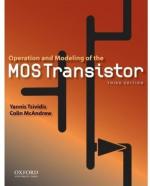|
This section contains 714 words (approx. 3 pages at 300 words per page) |

|
A transistor, broadly speaking, is a solid-state switch that allows a small signal to control a large signal, such as a current flow. The first transistor was invented by John Bardeen, Walter Brattain, and William Shockley in 1945. They were awarded the Nobel Prize for physics in 1956. That transistor was a point-contact transistor that is no longer used today. Since that time, transistors of all types have become crucial for modern electronics to function.
A transistor has three terminals. Current flows between two of them while the third one controls the current. In semiconductors, there are two charge carriers. One is the electron, which carries negative charges. The other is a hole, which carries positive charges. The amount of electrons and holes is often unequal. Consequently, the carrier which has a larger amount is called a majority carrier and the other is called a minority carrier. Depending on what...
|
This section contains 714 words (approx. 3 pages at 300 words per page) |

|


